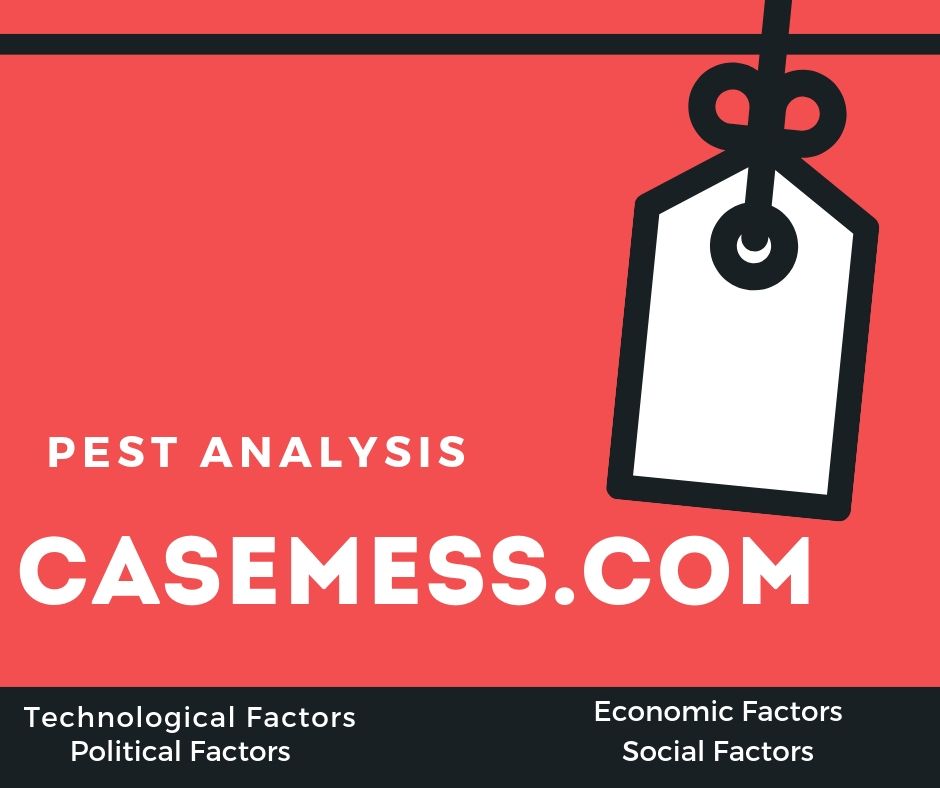Frogs Leap Winery In 2011 — The Sustainability Agenda [Case + Video] Case Study Solution
Home >> Chicago Booth >> Frogs Leap Winery In 2011 — The Sustainability Agenda [Case + Video]
Frogs Leap Winery In 2011 — The Sustainability Agenda [Case + Video] Case Analysis
In 1959, Rocky, during his tour to the United States checked out more opportunities in the United States of America as compared to Japan. After investing a period of three years, he had better analysis of the dining establishment market of the United States.

Therefore, in 1963, Rocky opened his first system to make an effort to use what he had found out in the West Side with his preliminary cost savings of about $10,000 obtained $20,000. This was repaid within a period of 6 months. In 1964, opening a humble unit with 40-seat in the midtown Manhattan, Frogs Leap Winery In 2011 — The Sustainability Agenda [Case + Video] Case Study Help grew to fifteen units chain through the country and a net worth of about $12 Million.
By 1972, it was actually a steakhouse with variation through the way food was cooked in front of consumers especially by the Japnense chefs and the decoration of the system was realistically detailed like the Japanese country. Among fifteen units of Frogs Leap Winery In 2011 — The Sustainability Agenda [Case + Video] Case Study Solution, nine of them were at company-owned locations and 5 were franchised.
Problem Statement:
Nevertheless, Frogs Leap Winery In 2011 — The Sustainability Agenda [Case + Video] Case Study Help had actually been rather various and is challenging to intimate, however the thing it did not have included the high expense of the products which was because of making use of products from your house of Japan and the participation of complete staff of native Japanese in the store. The service were time-consuming hence do not have fast service actions with a long time of queuing.
Operations in the organizational success:
Dining space:
Generally, the regular dining establishment requires 30 percent of the overall area of the restaurant as the house back. While, Frogs Leap Winery In 2011 — The Sustainability Agenda [Case + Video] Case Study Analysis contained just 22 percent of the total system space as your house back which includes workplace, dressing spaces of workers, dry and cooled storage and areas of preparation. This was a substantial increase in the floor area percentage committed to dining space to be efficient.
Hibachi table arrangement:
The removal of standard cooking area need with the plan of hibachi design offered Frogs Leap Winery In 2011 — The Sustainability Agenda [Case + Video] Case Study Solution an unusual attentive service quantity and kept the expense of labor at the gross sales of about 10 to 12 percent. This was dependent if the system was at full volume.
Reduction in menu:
Through reduction in the menu to only 3 easy entrées of Middle America that included Shrimp, Chicken and Steak. There had actually been substantial storage of food and virtually no food waste. This had cut the costs of food by 30 to 35 percent of the sales of food depending on the meat rate.
Historical Authenticity:
The decorative lights, artifacts, beams, ceilings and walls of Frogs Leap Winery In 2011 — The Sustainability Agenda [Case + Video] Case Study Solution were all from Japan. The product of structure was collected from old homes which were taken apart in a mindful way and shipped in pieces to the U.S. where reassembling was done by among his father's two teams of carpenters of Japan.
Site Selection:
Due to the lunch break company value, one standard principle of Frogs Leap Winery In 2011 — The Sustainability Agenda [Case + Video] Case Study Solution was its choice of website i.e. high traffic. Lease was normally at 5 to 7 percent of sales for the location of about 5000-- 6000 square foot for the area of floor. Much of the systems of Frogs Leap Winery In 2011 — The Sustainability Agenda [Case + Video] Case Study Analysis were found in the business districts with a simple access to the locations of residency.
Advertising Policy:
Among the essential factor in the success of Frogs Leap Winery In 2011 — The Sustainability Agenda [Case + Video] Case Study Analysis was its considerable investment in public relations and creative marketing. The financial investment of organization of about 8 to 10 percent of its gross sales in order to be approachable to public. Frogs Leap Winery In 2011 — The Sustainability Agenda [Case + Video] Case Study Help utilized completely various approach for ad. As they had visual items to offer. Therefore, it utilized impressive visuals in its advertisement. The complimentary copy was modern but often off-the-wall. This was on the basis of market research to be familiar with their possible clients.
Training:
The chefs of Frogs Leap Winery In 2011 — The Sustainability Agenda [Case + Video] Case Study Help were a terrific essential to its success as all the chefs were highly trained. All the chefs were licensed, native Japanese speakers, single and young significance that they had actually finished their formal apprenticeship of three-years. They were then offered with a course of 3 to six months in period in the English language about the manners of American design and the Frogs Leap Winery In 2011 — The Sustainability Agenda [Case + Video] Case Study Solution cooking design which was primarily showmanship in Japan.

Training chefs was an ongoing procedure in the United States. The chefs were not generally concerned with resignation of their job due to the reason which consisted of the possibility to increase in the Frogs Leap Winery In 2011 — The Sustainability Agenda [Case + Video] Case Study Help operation of America in comparison to the rigid hierarchy on the basis of education, age and class they may experience in Japan.Similarly, other element included the Frogs Leap Winery In 2011 — The Sustainability Agenda [Case + Video] Case Study Help's paternal mindset which took forward all the employees.
As a result, workers turnover in the United States was quite low, nevertheless, numerous eventually returned to Japan. For full gratitude of success of Frogs Leap Winery In 2011 — The Sustainability Agenda [Case + Video] Case Study Help, the unusual mix of paternalism of Japan in the setting of America had valued.
Imitation:
The restaurants of Frogs Leap Winery In 2011 — The Sustainability Agenda [Case + Video] Case Study Analysis adopted precise and distinct approaches throughout the selection of sites and chefs training which helped the company in minimizing the average time of dinner turnover and the special mix of paternalism of Japan in the setting of United States of America which made it tough for other organizations to intimate.
Winning Strategy:
Effective Training:
Frogs Leap Winery In 2011 — The Sustainability Agenda [Case + Video] Case Study Analysis invested greatly on the programs of training for the chefs:
• Training of official apprenticeship for a duration of 3 years with accreditation in the cooking style of Frogs Leap Winery In 2011 — The Sustainability Agenda [Case + Video] Case Study Solution.
• 3 to six months course as for the American good manners mentor and training in English language.
• Use of training program as a continuous procedure to be followed.
Employee Satisfaction:
Satisfaction of staff members as the community for support offered for every single employee:
• Complete satisfaction of staff members increases growth chances of efficiencies of both employees and company.
• Paternal mindset-- acted as the secret to the bonding on basis of culture with reliable management.
• Providing employees with handsome earnings and incentives such as plans of perk.
• Offering workers with intangible advantages like security of task and workers' well-being.
• Pride of workers functions as the key consider the motivation of workers.
Effective and Aggressive Marketing:
Financial investment of Frogs Leap Winery In 2011 — The Sustainability Agenda [Case + Video] Case Study Analysis at significant level in the upkeep of public relations and advancement of advertisement:
• Financial investment of about 8 to 10 percent in marketing from the gross sales.
• Company lead in terms of its uncommon strategy of advertising.
• Advertisement was exceptional, modern, off the wall visuals in the advertisement.
• Frogs Leap Winery In 2011 — The Sustainability Agenda [Case + Video] Case Study Analysis significantly kept its policy word of mouth in a consistent manner.
Customer Satisfaction:
Research study of market to evaluate the potential consumers and their span:
• Quality of food drive the clients' complete satisfaction the most i.e. usage of food of prime grade.
• The essential motorists worked as the factors of customers' fulfillment was primarily environment and service.
Problem Analysis:
Franchise
• Investors of business were not experienced in regard to grow the restaurant service.
• Absence of awareness about the culture of Japan and cooking design of Frogs Leap Winery In 2011 — The Sustainability Agenda [Case + Video] Case Study Analysis.
Financiers lack control in regards to management of operations.
Expansion
• Funds-- unwillingness to receive loans from institutions of financing such as banks.
• Organization dealt with inadequacy in the additional trained personnel.
Performance is considered great however is limited with accessibility of only 2 carpenters.
Operation
• Providers of the organization were time-consuming as there were no alternatives of fast service.
• The expense of ad was quite high and particular focus of company towards food.
• The services variation was limited to the primary United States food market.
• The menu of the company lacks range of food as the menu was limited.
Improvements:
Expansion
• For the expansion of company, there is a requirement to check out prospective regions such as residential area areas.
• Joint ventures are considered more liable in contrast to franchise such as with the chain of international hotel.
• Frogs Leap Winery In 2011 — The Sustainability Agenda [Case + Video] Case Study Analysis can substantially take funds from the institutions of finance as capital was not a matter of issue.
• Expansion of service in the international market like market of South East Asia with anattention of middle to upper class division.

Development of brands with differing worth proposition like Frogs Leap Winery In 2011 — The Sustainability Agenda [Case + Video] Case Study Analysis signature, Frogs Leap Winery In 2011 — The Sustainability Agenda [Case + Video] Case Study Analysis and Frogs Leap Winery In 2011 — The Sustainability Agenda [Case + Video] Case Study Analysis Asian Express.
Cost
• Through the expansion of company in the residential area areas, there will be reduction in the site cost.
• Cutting down of extra expense of advertisement.
• Use of local product in the development of building to offer it a shape of architecture of Japan.
• Use of in your area readily available workforce for the work of carpentry.
• Purchase of decor material wholesale total up to get more reduced rates of the items.
Building of workshops in third world countries such as Indonesia or Thailand for production of decoration craft of Japan as new service line.
Operation
• Introduce operations with quick services in order to cater the department of young people.
• Frogs Leap Winery In 2011 — The Sustainability Agenda [Case + Video] Case Study Solution can take up add-on business in order to sell standard things of Japan in a committed restaurant locations.
• Bring variation in the menu such as addition of sushi-on-the-go, udon, robatayaki.
• Intro of attractive schemes for old individuals and women.
• Introduction of complimentary card of membership to provide package of special deal to its loyal clients.
Building of local center for training particularly to train regional staff.
| Executive Summary | Swot Analysis | Vrio Analysis | Pestel Analysis |
| Porters Analysis | Recommendations |
